The “Dallas Car Sharks” reality television series was one of those automotive-themed shows that Motor Trend Network (formerly Velocity Channel) banked on, to help their network move up the ladder of the highly competitive TV ratings. It made its TV debut in 2013, and contributed to Velocity’s rise to 46th place in the male viewership demographic with ages 25 to 54, along with their other TV shows such as “What’s in the Barn” and “FantomWorks.” The network was able to get past 22 competitors including MLB Network, The Golf Channel, and NBA-TV. “Dallas Car Sharks” stayed on the air for three seasons, ending in 2015. Fans were surprised at its cancelation, but there were theories as to why the network pulled the plug, including a lawsuit filed against its production company for breach of fiduciary duty, and allegations of phony narrative.
What is “Dallas Car Sharks” all about?
When the automotive reality-TV shows became such a ratings magnet, Motor Trend Network explored many possibilities, and created more original shows focused on auto-restoration or customization.
https://www.instagram.com/p/7tLIiQIaXT/
With many competing shows out there with the same concept, the producers of “Dallas Car Sharks” tweaked the narrative a bit, and introduced a different way of presenting its content. Instead of creating scenarios in which they had clients dropping by the auto shop to have their vehicles upgraded, they gathered four competing car dealers in the Dallas area, and let them outbid each other in the car auction circuit. Their goal was to acquire the car that they could restore or customize, and flip it later on for a huge profit. They also got bragging rights for having the biggest payday haul in the local automotive dealership/restoration community.
Meet the “Dallas Car Sharks” cast
The four competing car dealers along with the auctioneer made up the main cast of characters in the TV show. All of them were quite competitive, and did everything they could just to get the vehicle that they wanted during the auction.
Tommy Spagnola, Texas Motorcars
His expertise in spotting which vehicles could be fixed and flipped, and then bidding on them in an auction house, was what made Texas Motorcars one of the top used car dealerships based in Addison, Texas. Tommy Spagnola built the business from the ground up from 16-years-old, and since then, has been providing affordable cars around the area. Customers were pretty impressed by the overall look of his facility, with all his hot rods displayed in the garage along with vintage neon markers on the walls. His business ethics was second to none, and he gained the respect of the automotive community. Most of his spare time was devoted to fishing with his family aboard his yacht in the Bahamas, or spent on the dirt track.
Ash Rabah, Tampa Bay Motor Works Inc.
The owner of Tampa Bay Motor Works Inc. was originally from Chicago, where he finished a degree in Bio-Chemistry; Ash’s success as a student was so much celebrated that his college thesis can be found in the Journal of Chemistry.
After college, he became the youngest Mobil Oil independent dealer, and then he moved to Florida in 2005, to open his first used car dealership in Tampa. After six years, he expanded his business by establishing his second branch in Dallas, Texas.
Martha Davis, MSM Automotive Sales and Service
In an industry dominated by men for years, Martha Davis dared to break into its world, equipped with the knowledge she learned while growing up, from looking at her father’s work. He was a reputable car dealer around Dallas, and she tried to replicate that by staying true to her mantra, ‘Your word is your bond.’ Her brother also provided her with tips on buying and selling used cars.
JD Cole, MSM Automotive Sales and Service
JD Cole was a third-generation car dealer, as his mother, Martha Davis, along with his grandfather provided him the necessary knowledge on how to go about the automotive industry. While he started in the business alongside his mother, Martha knew when to cut the strings so her son could thrive on his own.
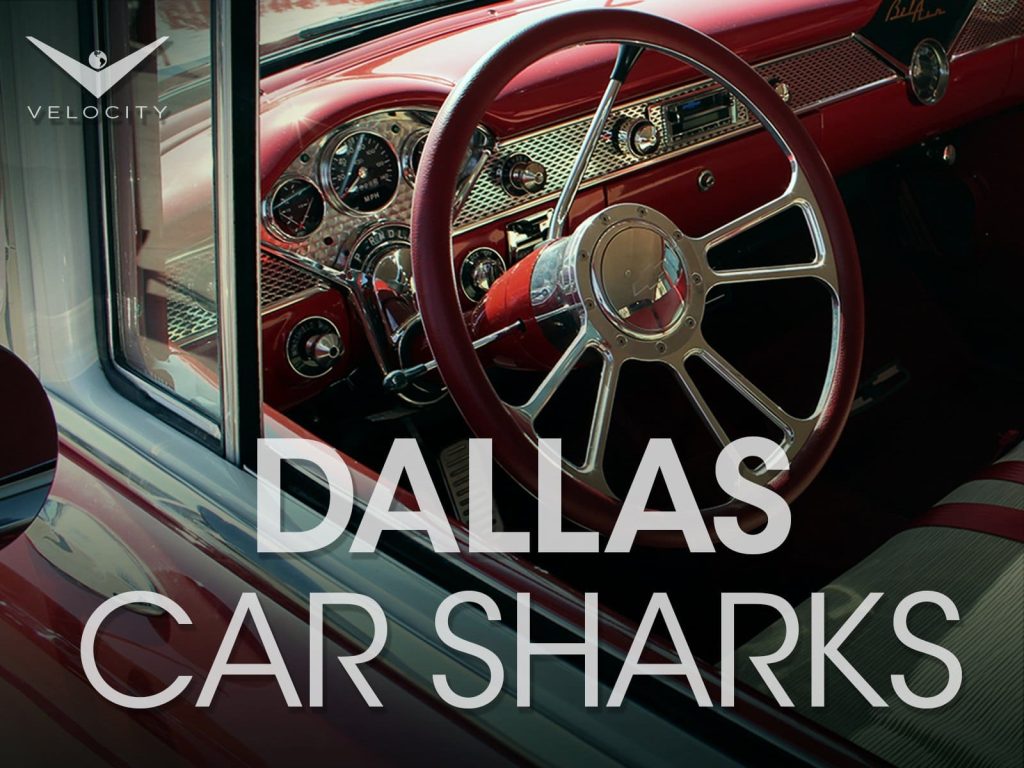
While he would butt heads with his mother now and then, respect and love were evident between the two. They might share the same garage space for practical reasons, but they have separate business entities.
Andy Dunning, The auctioneer
Since the series featured bidding for vehicles, Andy Dunning played the crucial role of auctioneer. Each episode started with the car dealers trying to outbid one another, with Andy making sure that they would all feel the competitive spirit. He would spit out witty commentary, and even pit them against each other just to get a higher price. More often than not, the dealers were triggered by his antics, and bid higher than they originally planned, because it turned into a pissing contest instead of focusing on the potential of the vehicles that were on the auction block.
The premise and the first episode of “Dallas Car Sharks”
“Dallas Car Sharks” gave a different spin on auto customization, and regular folks could easily relate to it. Instead of looking at dream cars with expensive spare parts, the show focused more on affordable cars, and was probably the reason why it gained a loyal following.
The first episode was aired on 23 July 2013 on Motor Trend Channel, and ran for about 30 minutes.
From the get-go, it was quite obvious that those four car dealers knew so much about one another, as each of them planned their bidding strategies before going to the auction house. Everyone was aware of what the others would be itching to get from the auction block. Ash wasn’t really interested in any of the vehicles that were being auctioned that day – he only went there to provoke the other bidders most especially Tommy, whom he was quite sure would go for the big monstrous truck. JD knew that his mother was hell-bent on getting the Thunderbird, so he made the bidding competitive. Tommy, at $25,000, and Martha, at $4,800, paid more than they intended to, just to get their hands on them. JD spent about $4,500 for the Camaro that he took home.
It was plain to see that all of them were quite focused on how to make easy bucks, by fixing the vehicles in the swiftest possible time, without really prioritizing high quality, although it didn’t mean that they were repaired with sub-standard skills.
https://www.facebook.com/MotorTrendTV/photos/a.247037871997836/755249121176706/
Unlike other automotive restoration shops, in which they meticulously looked for the best possible option to be used in restoring the vehicle, the goal in “Dallas Car Sharks” was just to make the car look presentable enough to lure buyers, and make it run smoothly so that car enthusiasts with smaller budgets could afford to buy them.
Before the episode ended, Martha sold the restored Thunderbird for $8,500 and earned close to $3,000 after subtracting the expenses she spent on it. JD sold the newly painted Camaro for almost $9,000 and earned a profit of $2,500. Lastly, Tommy earned the highest profit with $8,000 that episode, by flipping the pick-up truck for $35,000. Since it was only a 30-minute show, everything was fast-paced, from the bidding process to the fixing of the vehicles. The actual flipping of the cars wasn’t shown, but was only narrated to give the viewers a picture of how much they earned from their restoration projects.
https://www.instagram.com/p/6PoGQLthwu/
Interesting facts and rumors about “Dallas Car Sharks”
With a plethora of car-related reality-TV shows airing on both mainstream and cable channels, it was a pleasant surprise for people in the Motor Trend network that “Dallas Car Sharks” attracted a huge chunk of viewers in its first season. They ordered two more seasons from AMS Studios, and in those three seasons, lots of controversial issues surfaced online about the TV show. Here are just some of the most-talked-about:
Highly staged with no actual footage of flipped cars
When car enthusiasts and fans of the automotive-related TV shows talked about “Dallas Car Sharks” in the online community forums, the general consensus was that the TV show was the worst of the worst when it came to being scripted. Many said that there was totally nothing real about it. The bidding process was obviously staged, even if it was done at a legit place such as the Texas Lone Star Auction House, and the fact that they never showed the actual re-selling of the restored cars was in itself quite dubious; the audience was only told how much each of them earned at the end of the episode.
It could be because the producers were cutting down the production cost, or were too lazy to even stage one, but the most logical reason was that the vehicles weren’t resold.
Made each car look incredibly worse to justify the bargaining price
People became highly suspicious of the way the cars were auctioned, as they looked unbelievably terrible. Most viewers thought that the production crew made it that way to create a certain narrative. While some cars may have come from barnyards or unkempt garages, in real life, owners would clean them up first so they could lure buyers to bid for them, or if those cars were owned by the auction house, it was only logical to present them properly to increase the price. The fans found it quite funny and ridiculous at the same time.
Mother and son bidding antics weren’t funny
Fans criticized the way mother and son tried outbidding each other oftentimes during the auction process. Initially, it was entertaining to see that JD loved to tease his mother but doing it many times over and having your mother spend more money than she needed to was plain stupid.
People were expecting JD to somehow protect his mother from the other bidders, instead of making it difficult for her by playing along with the other bidders.
Not focusing more on the restoration process
The premise of the show was that the car dealers would bid, fix, and then flip the vehicle for a profit. It was frustrating when a 30-minute show would spend more time showing scenes not related to auto-restoration. For instance, when JD and Ash both took home Corvettes, there were plenty of scenes dedicated to how the two raced their cars after fixing them, and then bet on them. It wasn’t as if they were professional or even amateur racers to get the audience excited. Many viewers became unhappy that they never got to see longer actual restoration footage. It was for this reason that people doubted if each of the cars that they chose to work on in the show was really in need of fixing.
https://www.facebook.com/MotorTrendTV/photos/a.247037871997836/686553958046223/
There were times viewers noticed that some parts of the car were duct taped; they couldn’t find the reason for it, and were left wondering if it was because they were hiding something from the discerning eyes of some of the car enthusiasts.
A lawsuit in the second season
Having a lawsuit filed against a TV show wasn’t a rare occurrence, as it was known to happen even before reality-TV shows became a huge thing. In the case of “Dallas Car Sharks,” its production company, AMS Pictures, received a legal complaint when they were in the middle of airing the second season. The Dallas Morning News reported that a certain Bruce Kahn claimed that he was the one who conceptualized the idea of having car dealers in Dallas bid, restore, and flip cars just like the premise of the “Dallas Car Sharks.”
Allegedly, he talked to the executives of AMS Pictures and pitched the concept in 2011. He even pointed out certain local car dealers in the area who would be perfect as members of the regular cast.
Mr. Kahn also claimed that he had only pitched his concept because the AMS official verbally agreed that he could co-produce it, and enter into a profit-sharing scheme. He was even the one who came up with the possible TV show title, “Car Sharks.” Later on, he was told that AMS Pictures didn’t want him to co-produce and that they were not amenable to any profit-sharing scheme. He told them that it was okay, and that he would just pitch his concept to another production company. However, he was shocked when AMS stole his idea, produced the TV show, and even used the name he came up with. When Andy Streitfeld, CEO of AMS Studios was asked about the lawsuit, he said that he didn’t know of any Bruce Kahn and that he wasn’t aware of the allegations, but that he would comment after he talked with his lawyers.
The possible reasons why “Dallas Car Sharks” was canceled
For a TV show to be hailed as one of the few that helped the network gain a better trajectory on its viewership ratings during its debut year, it was such a surprise that the network executives chose to ax it after airing its third season.
Since the cable network never offered an explanation as to its cancelation, fans discussed online the possible theories as to why it ended.
During the end of the first season, the cast, crew, and executives associated with the TV show were ecstatic about its TV ratings, which were positively high, and so they immediately ordered another season, thinking that its popularity would continue to increase. Somewhere in the airing of the second season, many negative things happened that affected the show’s trajectory. The lawsuit that was filed against them became newsworthy, and gained momentum in social media. If Mr. Kahn’s allegations were proven, then AMS Pictures and Motor Trend would naturally pay huge money for the damages that he incurred because of it.
It also didn’t help that viewers seriously doubted the show’s integrity. Being mostly from the car enthusiasts’ community, fans were more discerning of what they watch on their screens during the second season of a show.
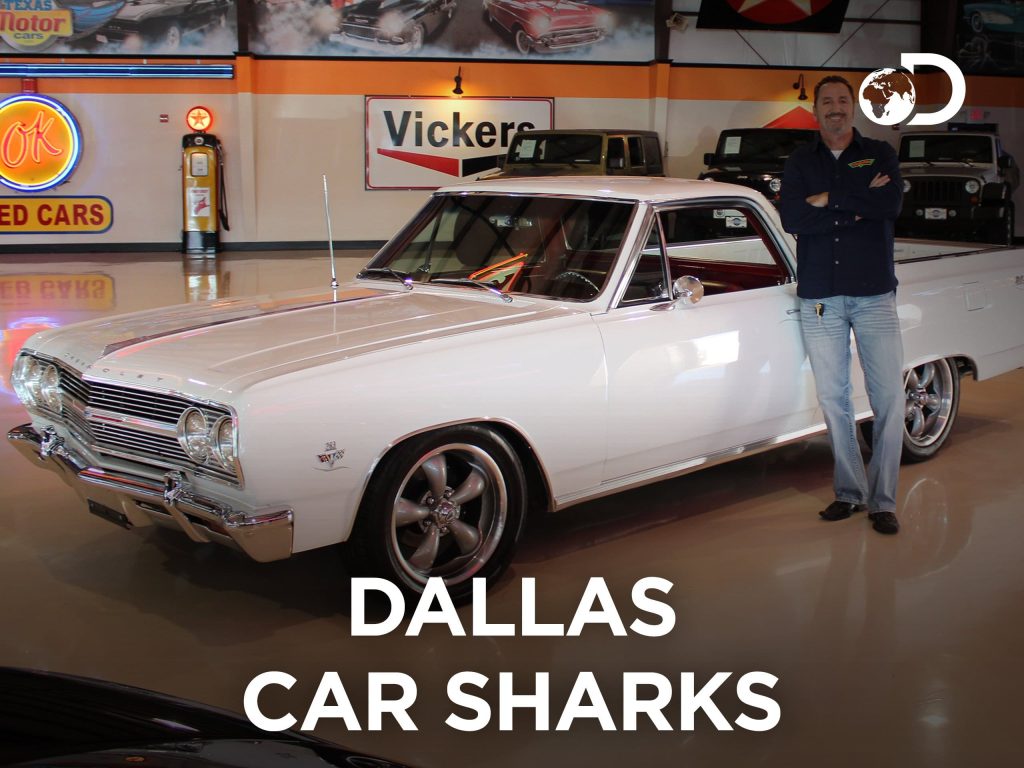
A new show would mostly get a pass if some of its episodes in its first season were filled with not-so-great footage, bloopers, or illogical narrative. However, during the second season, they would scrutinize each episode properly, and unfortunately, most of them found the show ridiculously scripted. They never put the blame on the main cast, as they were hired as talents and oftentimes only acted what they were instructed to do.
Most fans believed that the “Dallas Car Sharks” was only renewed for the third season because the executives thought that the show would pick up again if they tweaked it a bit, and were mindful of the issues thrown at them. However, the decline of viewership ratings continued, and they didn’t have any choice but to end it. It was the only way to stop the bleeding of expenses of production cost. If there were fewer viewers, it would mean fewer subscriptions and fewer advertisements, and that would ultimately mean less revenue, or worse, a negative profit margin.

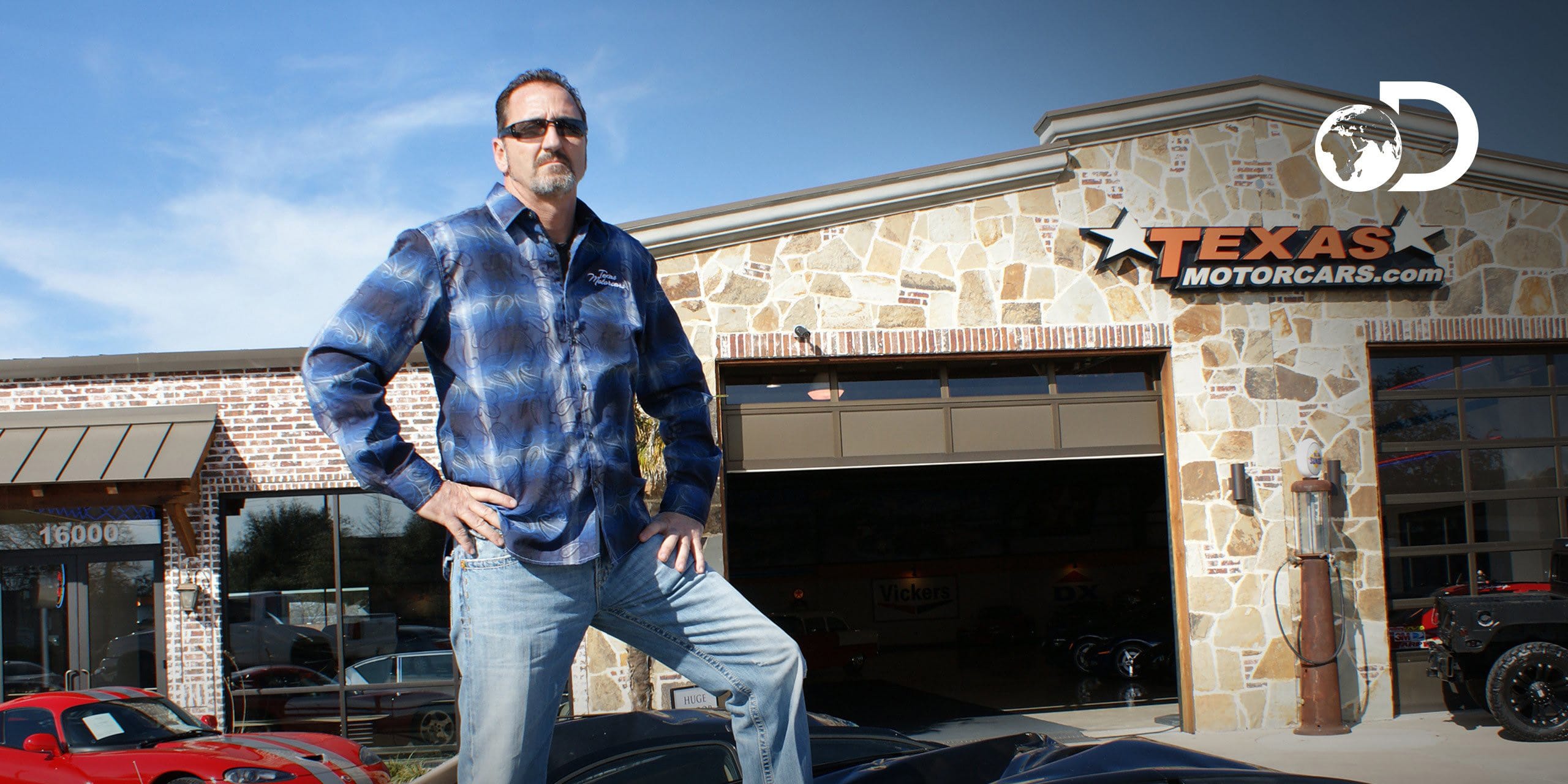
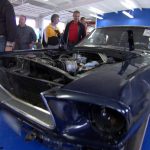

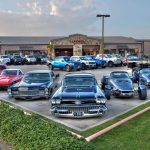


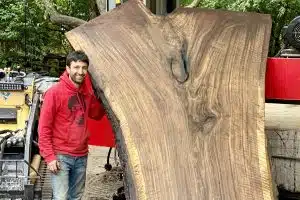

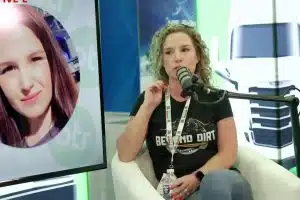

Leave a Comment